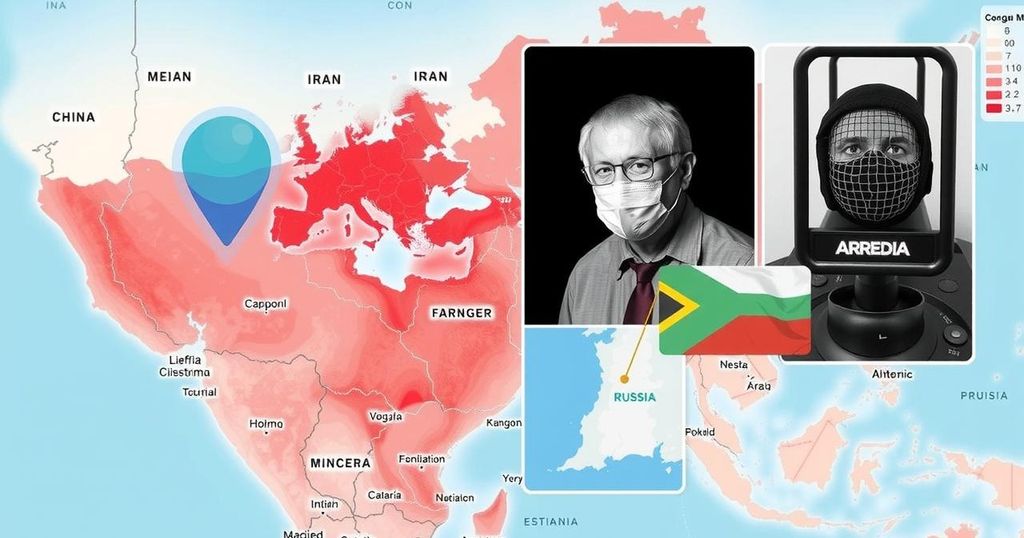Global Economic and Political Challenges: Iran’s Plight, China’s Tourism Revival, South Africa’s Safety Measures, and Russia’s Assassination Case
Iran’s rial drops to a record low amid severe economic crises; China expands visa-free travel to boost tourism following a surge in arrivals; South Africa closes over 1,000 informal grocery shops due to health risks; Russia arrests a suspect in the assassination of a general linked to Ukraine’s conflict.
Iran is currently facing a multitude of crises that have culminated in the Iranian rial experiencing a historic drop to 777,000 against the US dollar. This decline is indicative of broader challenges, including the devastating impact of regional conflicts and an ongoing energy shortage that has necessitated the closing of schools and government offices. Concurrently, in an effort to revive its tourism sector post-COVID, China has expanded visa-free travel up to 10 days for visitors from around 50 countries, leading to a remarkable increase in tourist arrivals, which surged by 86% over the past year. Meanwhile, the South African government has taken significant actions by shutting down 1,041 informal grocery stores known as spaza shops, following tragic reports of children falling ill and dying from pesticide-contaminated food sold in these establishments. Lastly, Russia has made a high-profile arrest in connection with the assassination of Lieutenant General Igor Kirillov, with claims that the suspect received a substantial sum of $100,000 for carrying out the attack, which allegedly involved a bomb discreetly placed in a scooter.
The article presents a snapshot of significant geopolitical and economic issues currently affecting Iran, China, South Africa, and Russia. Iran’s financial instability is deepened by regional tensions and domestic crises, showcasing the country’s dire economic situation. On the other hand, China’s strategic move to encourage tourism reveals efforts to rebound from pandemic-related downturns. South Africa’s health crisis related to informal food establishments highlights challenges in food safety regulation. Finally, the arrest of the assassination suspect in Russia underscores ongoing tensions in its security dynamics amid the conflict involving Ukraine.
In summary, the current global landscape is marked by several pressing issues: Iran’s economic plight highlights the consequences of geopolitical instability; China’s fresh tourism strategies aim to revitalize its economy; South Africa’s public health initiatives demonstrate a response to crisis; and Russia’s internal security challenges reflect ongoing conflicts affecting its military oversight. Collectively, these events paint a complex picture of how nations are navigating multifaceted crises in today’s interconnected world.
Original Source: www.gzeromedia.com




Post Comment